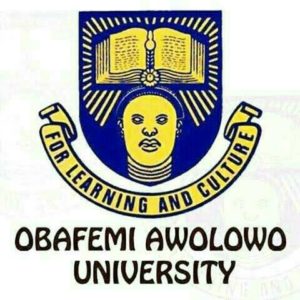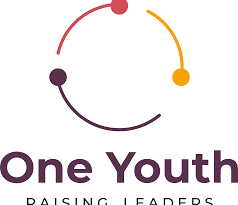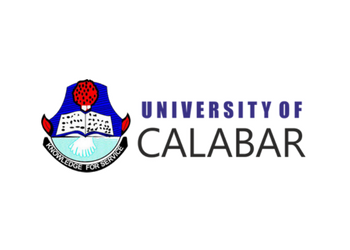How EFCC hostel raid, students’ arrest affected OAU — PRO
The Public Relations Officer of Obafemi Awolowo University, Abiodun Olanrewaju, talks to BOLA BAMIGBOLA about the recent arrest of 69 students of the institution by operatives of the Economic and Financial Crimes Commission over alleged internet fraud
Recall that Operatives of the Economic and Financial Crimes Commission(EFCC) recently raided some off-campus hostels and arrested some OAU students. What is the implication of this on the image of the university?
Concerning that, it has no negative effect on the image of the university. In fact, if anything at all, it further boosts our image that the EFCC arrested several students, 69 or thereabout and that in less than 12 hours, they released 59 or 60. That shows that in line with our conduct, OAU students are not only exceptional but they are decent and diligent.
Was the university surprised by the arrest?
Of course, I should be surprised because our students are not known for such things. We know ‘Yahoo’ boys and you know them by their conduct. Also, by their approach, you know them. At OAU, if you see our students, you will know that they are Great Ife students. If they were predominantly internet fraudsters in their orientation, the EFCC would not have released 59 to us out of the 69 they arrested, and they even told us that they were profiling other ones who were held back.
Was that the first time an incident like that would happen to OAU students?
Yes, that was the first that would happen to our students in the university and because we see those students as our children, we decided to follow them to where they were taken to. Even though they were arrested outside the campus, the fact remains that they are our students.
How would you describe your experience of having to go to Ibadan, Oyo State, to secure their release?
It was not a good experience but then it was worth it. Our decision to assist the students so that they would know that the university cares for them was worth it. The trauma they passed through having been arrested in the night was not a palatable one. So, as their parents on campus, we owe it a duty to find out what happened to them. On our way to Ibadan, we encountered traffic jams and other issues. When we arrived there, we met some of their (affected students’) colleagues who were chanting, and singing. We couldn’t reprimand them because we saw what they were doing as being their brother’s keepers.
We got there and I introduced myself as the PRO of the university. A senior (EFCC) officer, one Dr David Nkpe, was called to attend to us. He was a very dignified, humble and humane person, one, very sound and solid. He combined the official duty of the EFCC with fantastic human relations. He was the one who assisted us. He took us to some other places around and we were able to identify our students. And he asked if we wanted to get them bailed. We said yes and he released those who were not implicated to us, 59 of them.
Is it true that N100,000 was paid for the release of the affected students?
I never paid a dime. The vice-chancellor was not around, the bursar was also not around. I went there and represented the university. Nobody collected a dime from me and I didn’t offer a dime to anyone.
What will the university be doing to, at least, discourage its students from getting involved in internet fraud?
The question you are asking me should be directed at parents. In the first instance, the parents bought the Unified Tertiary Matriculation Examination forms for their children. They (students) take the exam and when they pass, we ask them to come for the post-UTME; it is only when they are under our custody that we know what the parents are bringing in and anybody whose conduct or utterances is overtly not proportional to the dictate of the university, we have what we do.
I mean the punishment at OAU is corrective and not punitive. If any student is found unworthy or violates their matriculation oaths, we know what to do. If a student goes on suspension, they may go for a semester, two semesters, three or four. We recall such a student because we believe that such a student’s brain must have been reset to accommodate the mental integrity of OAU.
The question you asked me should be directed at the parents because how do I know somebody who chooses OAU in conduct and learning deeply? It was the parents who bought the form. How do I know a child that is promiscuous, and criminally minded when we ask them to take the post-UTME?
Names of the arrested students were released online when profiling had not been concluded. What is your take on that?
Well, for you to know OAU’s superlative degree of connection and administrative acumen, the chairman of EFCC has given the instruction that raids should not take place at night. That shows that we have a mechanism to check excesses of any agency of government without being unnecessarily confrontational. It was called a sting operation and for the students of language, we know what that means.
I think EFCC PRO should not have released the names of the students. He could have just said 69 persons, but not listed their names. I just pray that no parent will be wise enough to want to sue the EFCC. In the same manner and enthusiasm which the EFCC PRO exhibited in posting the names of the students on the internet, he should have told the world and listed the names of the students that have been released. Some people can demand justice for these young ones.
We are always on top of our game and at the top of situations. We would not fold our arms and allow anything untoward to happen to any of our students. Actually, we call them our children and we cannot watch them suffer. Even though they were arrested at halls of residence outside of the university campus, that does not remove the fact that they are still our students.
Some people believe that higher institutions in the country are becoming fertile ground for youths interested in vices due to the absence of discipline. Do you agree with that?
A child stays with the parent through nursery school to primary school. They were with their parents during their formative years. The parents only gave us what they had done and we are only here to teach the students details of the particular course they applied for. Manners and morals should come from home, not from the university.
At times, people will ask what we teach them in the university. We don’t teach them morals. We only say they are found worthy in learning and character. Learning first; character means the way they behave themselves. Just like the appearance of medical doctors, engineers and others would depict the character of their discipline. But their manners, and morals should come from home.
In view of the recent incident, what lessons can students of the institution learn?
The victims should put everything behind them and move forward with their lives. It’s an experience of life. Life is not a bed of roses. By the grace of God when they become officials of government, I am sure they won’t treat others the way they were treated.
Source: Punchng



